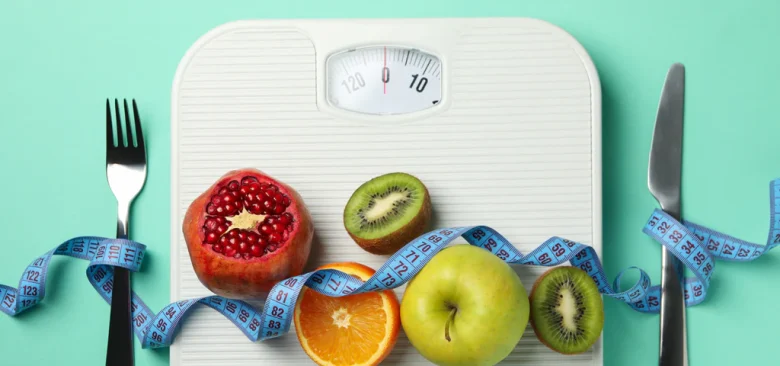One of the best ways to lose weight or build muscle is to count calories. This strategy will help you understand how your diet affects your body. Whether you want to lose weight or build muscle, it’s important to know how many calories you need. This article will explain how to count calories and provide suggestions for getting into the habit.
Understanding BMR and TDEE
To count calories, you need to know your BMR and TDEE. BMR is the number of calories your body needs to breathe, circulate blood, and maintain resting cell function. However, TDEE includes all the calories you burn each day, including calories burnt through exercise, digestion, and daily tasks.
Calculate your BMR using the Harris-Benedict equation to get your TDEE. Multiply your BMR by your physical activity level. Knowing your TDEE will help you adjust your calorie intake to meet your goals.
A Great Way to Track Calories
Tracking calories can be tricky, but with the right tools and mindset, it’s easy. With a huge database of diets, apps like MyFitnessPal and Cronometer make it easy to track your diet. These apps log food, display calories, and track daily intake.
Another key to accurately tracking calories is portion control. A kitchen scale allows you to accurately measure out amounts so you can be sure you’re estimating calories correctly. It can also help to read food labels and look for hidden calories in condiments, sauces, and snacks.
Changing Calories to Lose Weight
To lose weight, you need to consume fewer calories than you burn. It’s safe and effective to reduce your calorie intake by 500-750 per day. A healthy, sustained weight loss of 1-2 pounds per week is normal.
Avoid excessive calorie restriction, as this can lead to nutrient deficiencies, fatigue, and muscle loss. Instead, choose vegetables, lean proteins, whole grains, and healthy fats. These foods can also help you feel fuller longer while keeping your calorie intake in check.
Adjusting Calories to Build Muscle
To build muscle, you need a calorie surplus: you eat more calories than you burn. Eating an extra 250-500 calories per day can help you build muscle mass without fat. During this phase, protein consumption is essential for muscle repair and growth.
To build muscle, you need strength training. Therefore, make sure your diet matches your workouts. Combine increased calorie intake with a well-structured strength training program for best results.
Macronutrients and Calorie Counting
Understanding macronutrients such as protein, carbohydrates, and fats is just as important as counting calories. Protein and carbohydrates contain 4 calories per gram, while fat contains 9 calories.
Protein helps maintain muscle mass during a diet. A balanced diet of all three macronutrients can optimize energy and recovery after muscle-building exercises. Adjusting your macronutrient ratios to meet your goals can help you improve your calorie intake.
Avoid These Calorie Counting Mistakes
The most common calorie counting mistake is underestimating portion sizes. Nuts, oils, and avocados are high in nutrients, but also high in calories. So small differences can make a big difference. Not tracking snacks and drinks is also a mistake, as their amounts can add up over time.
Some people focus only on calories and ignore the quality of the food they eat. Low-nutrient foods may meet your calorie needs, but they can also leave you feeling tired and lacking in vitamins and minerals.
Long-Term Strategies for Sustainable Calorie Counting
Counting calories is effective, but it’s not something everyone should do all the time. With practice, you can recognize portion sizes and make healthier food choices without having to keep track of every meal. You can improve your calorie counting by eating more mindfully, such as eating slowly and paying attention to your hunger.
Another strategy for long-term success is preparing meals in advance. It prevents impulsive eating and makes for healthier choices. These habits can help you count calories.
The Importance of Consulting a Professional
If you have special dietary needs or health conditions, consulting a doctor, dietitian, or nutritionist may be more helpful than counting calories. A professional can help you set calorie and macronutrient goals, meet your nutritional needs, and maximize your results with personalized recommendations.
If your weight loss or muscle gain is stalling, professional help is essential. A specialist can evaluate your progress and recommend changes to your plan to help you make progress.
Guide Your Nutrition Journey
Counting calories can help you lose weight or build muscle. Knowing how many calories you need, tracking your intake, and avoiding common mistakes can help you succeed. It’s crucial to stay the same, make changes, and consider calorie counting as part of a healthy lifestyle.
When you’re ready, talk to a dietitian to customize your plan. Remember, the journey is for a significant, ongoing transformation, not perfection.
FAQs
1. How do I start counting calories?
Use an app to track your calories and log your food intake. Be accurate when measuring portion sizes and check food labels.
2. Can I eat anything within my calorie limit?
Technically yes, but counting calories without paying attention to the quality of your food can lead to malnutrition. Nutrient-rich foods should be the foundation.
3. How often should I adjust my calories?
Recalculate your TDEE every 4-6 weeks, or when your weight or activity level changes significantly.
4. Should I count calories to lose weight or build muscle?
Counting calories is optional, but it can help you understand how food affects your progress and reach your goals faster.
5. Is counting calories harmful?
Excessive or unguided calorie counting can lead to obsessive behavior or vitamin deficiencies. Keep your balance and seek professional help.




